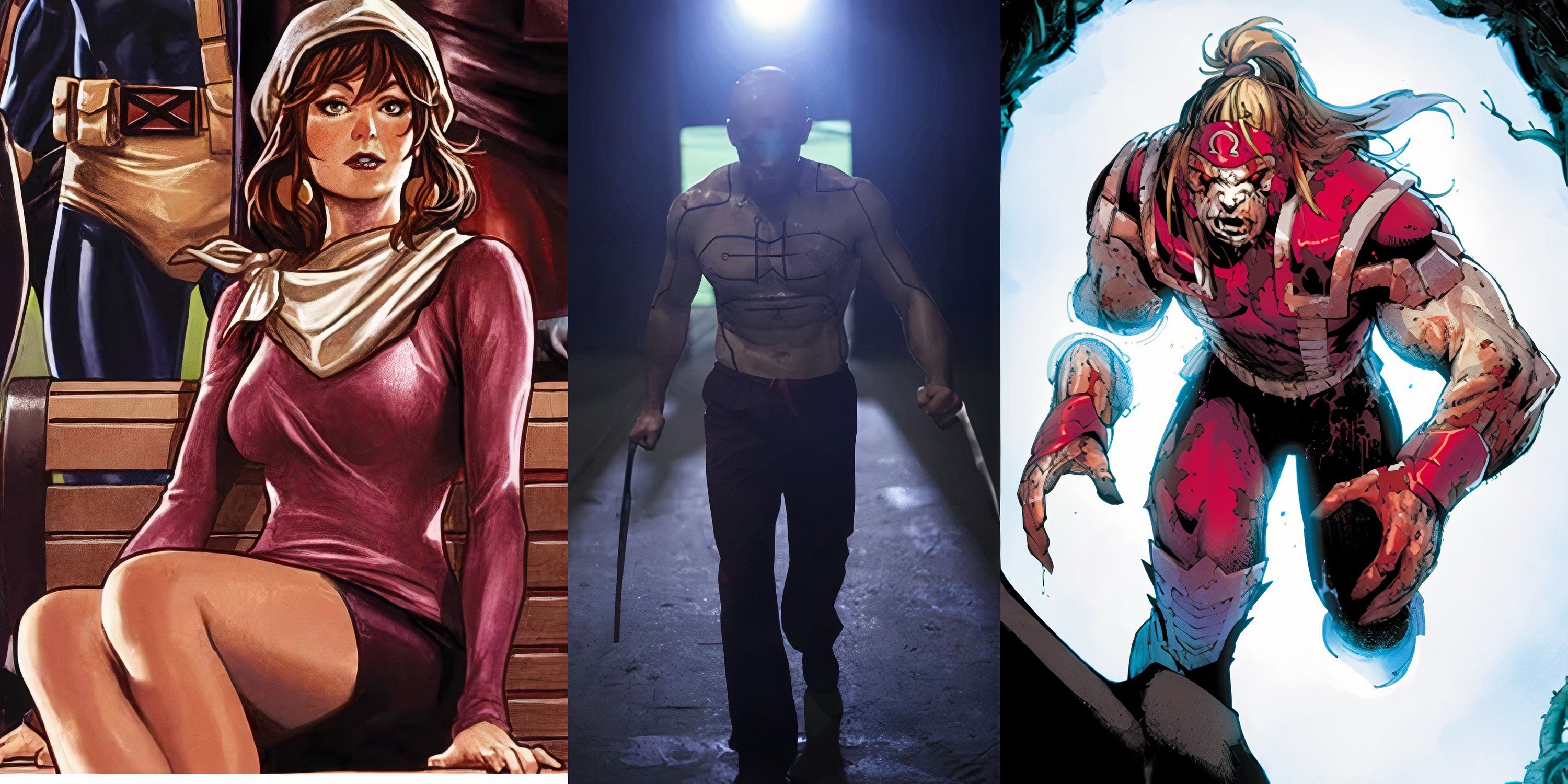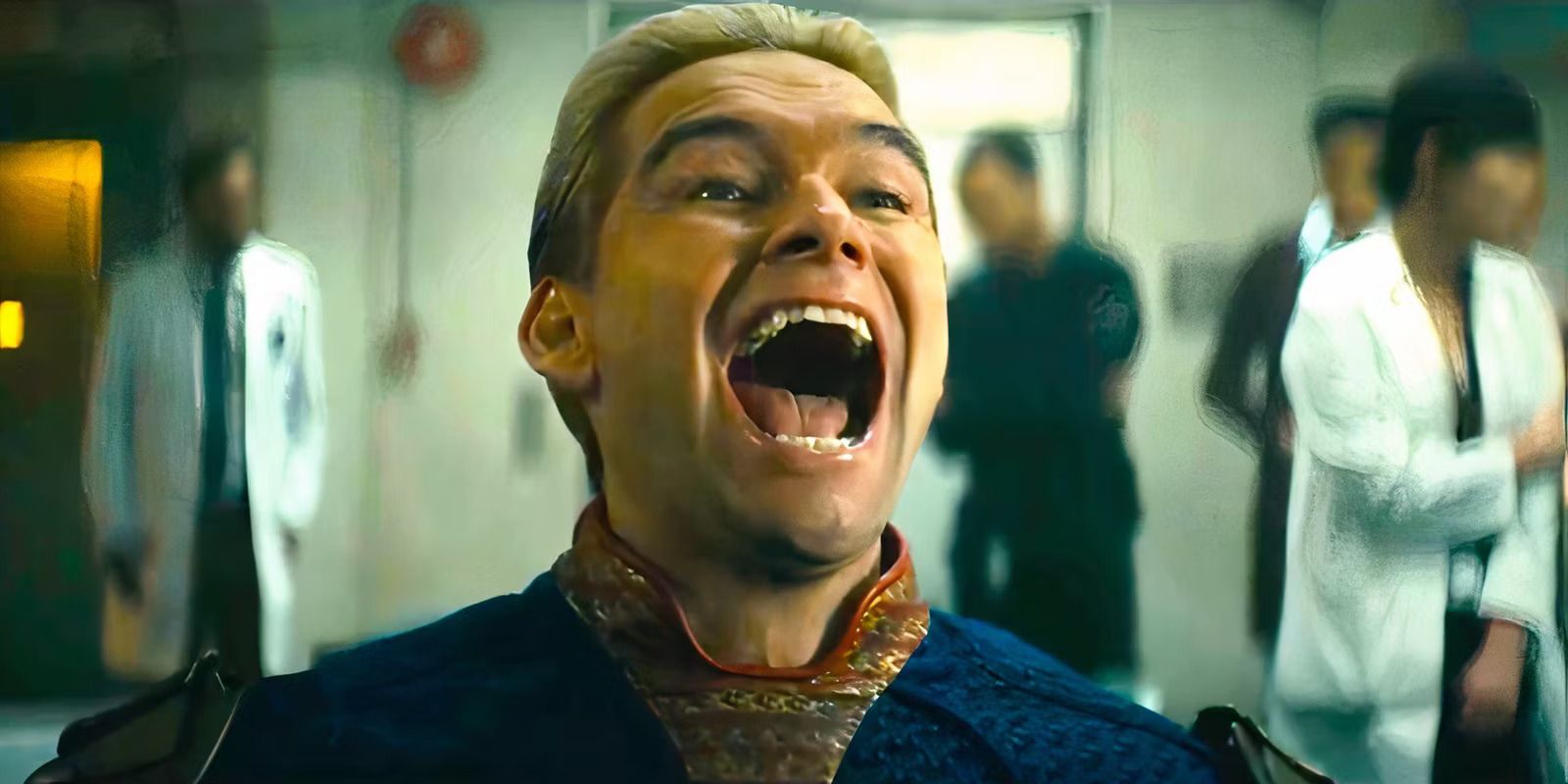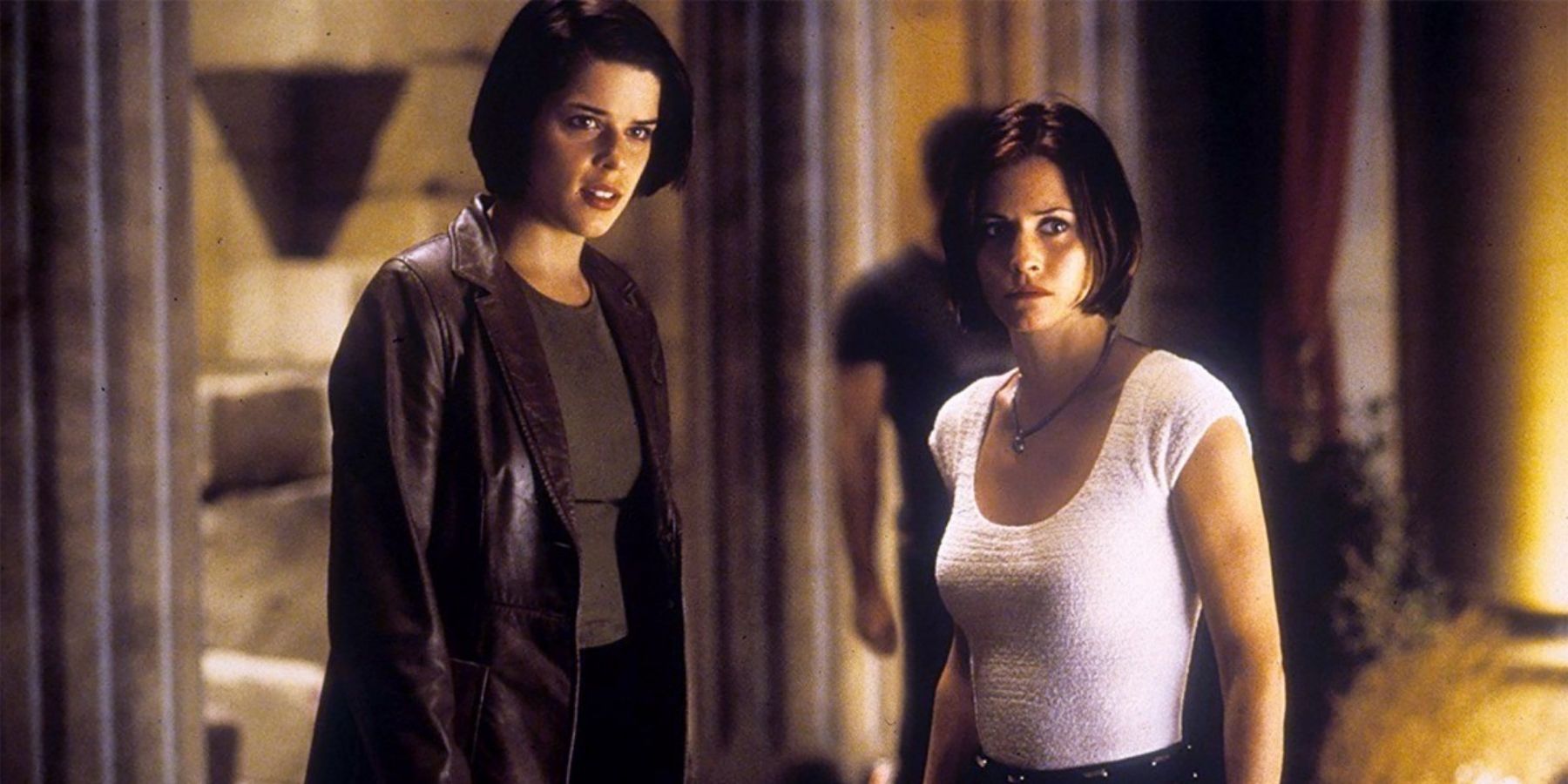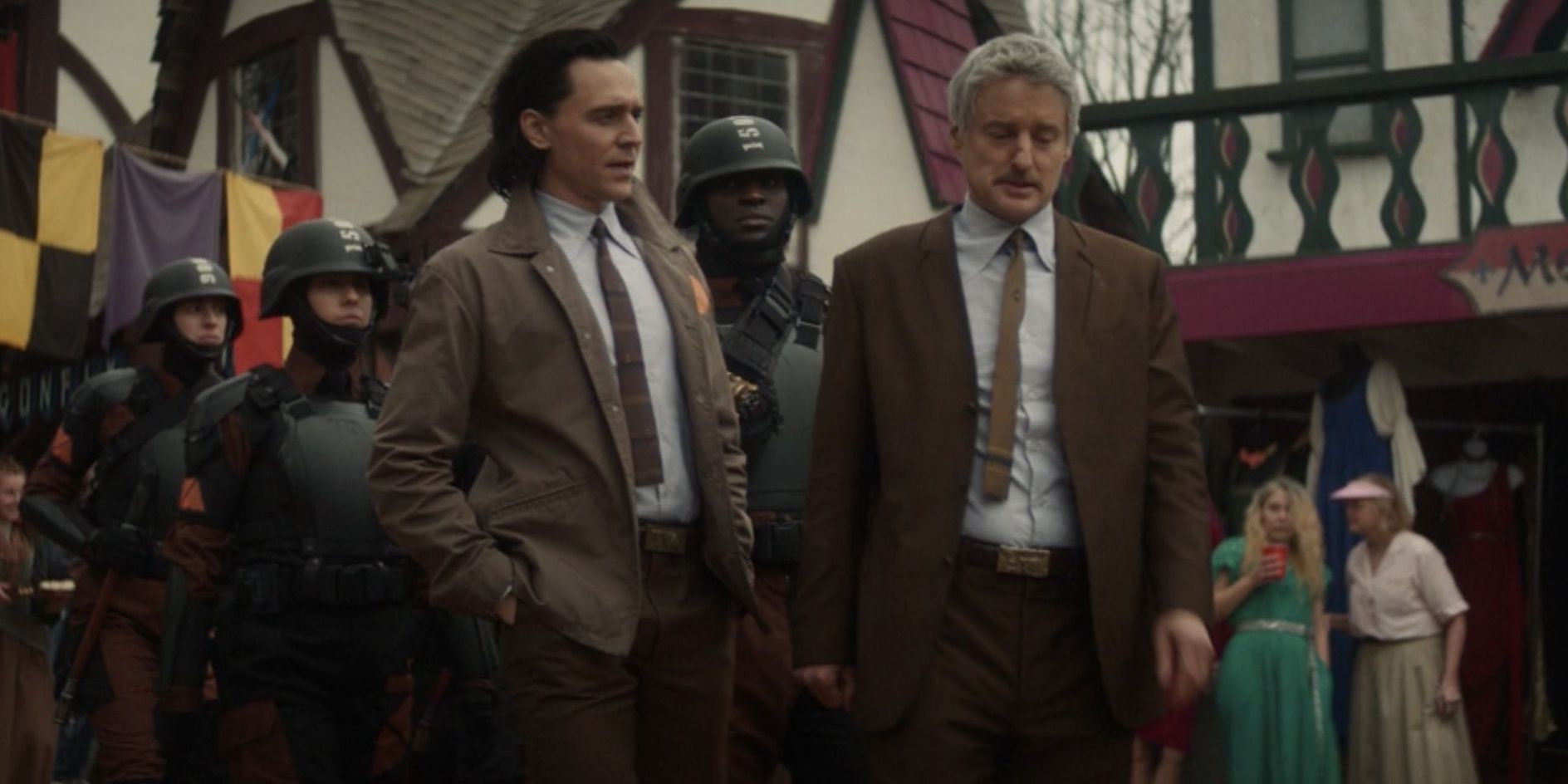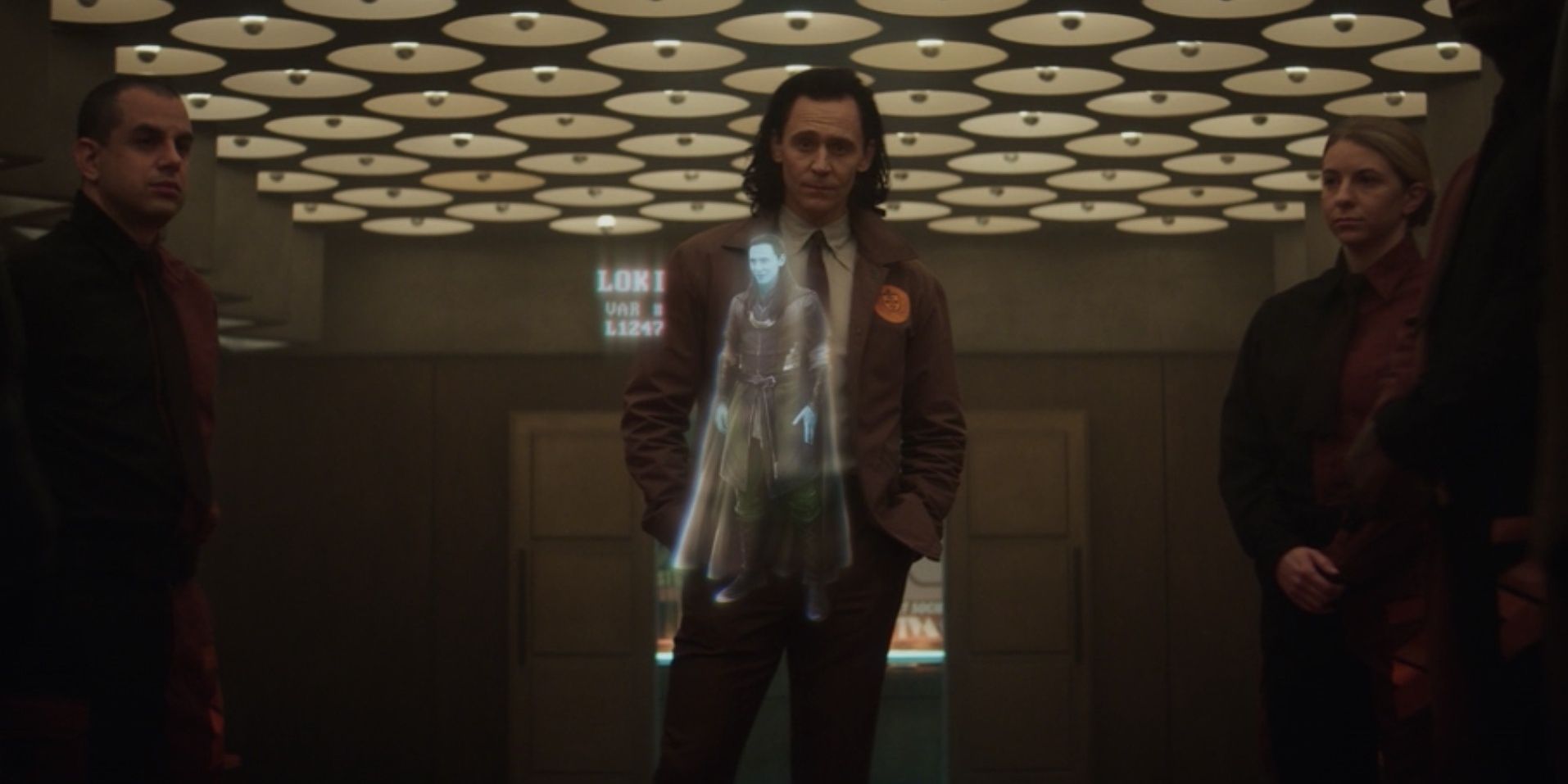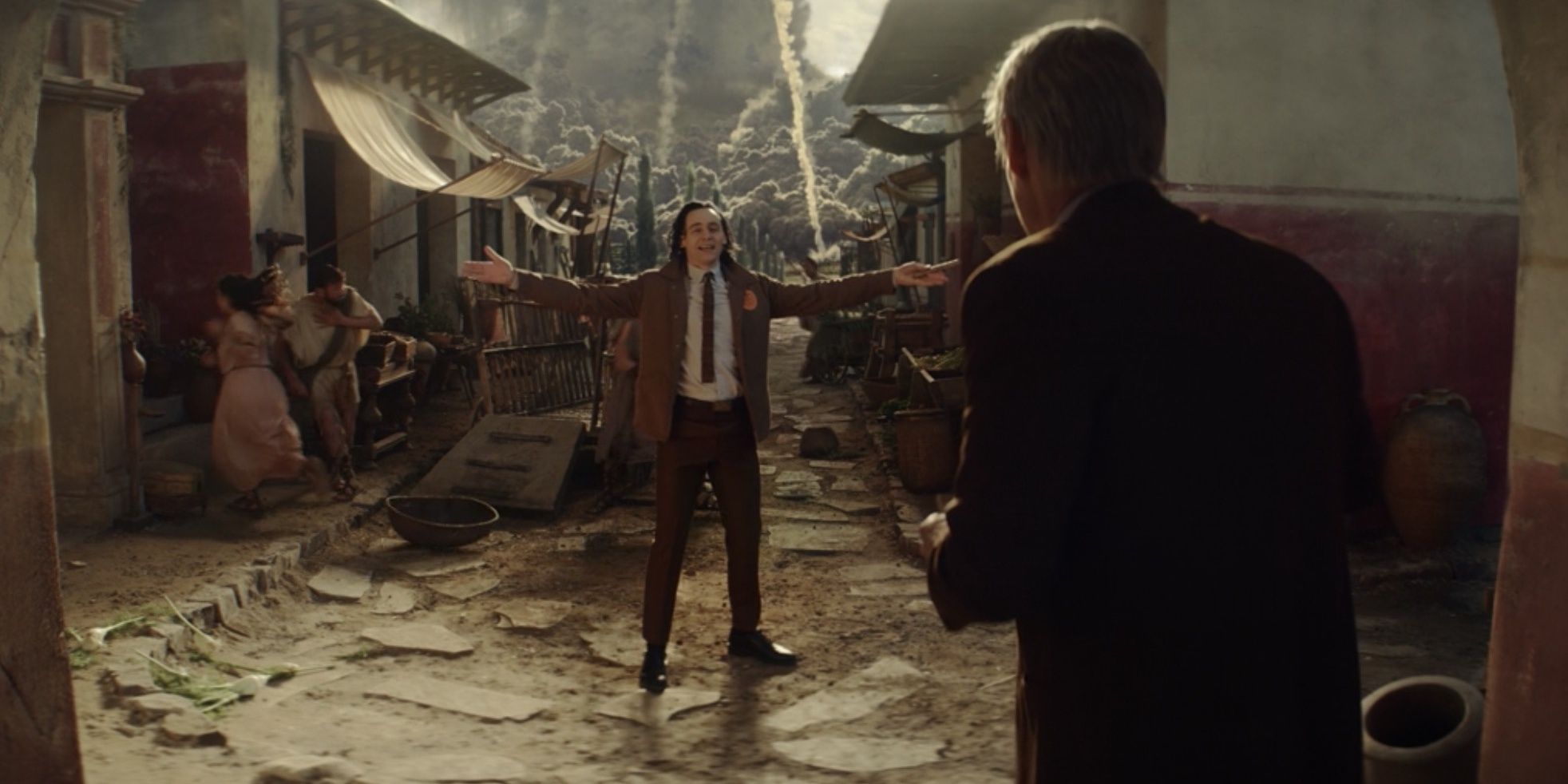This review contains spoilers for episode 2 of Loki.
Episode 1 of Loki, titled "Glorious Purpose", introduced the Time Variance Authority and caught up with 2012's Loki just after he escaped from the Avengers in Endgame. The episode packed in fantastic visuals, stunning performances, and a unique premise. Loki is, more or less, a police procedural in which the God of Mischief helps the TVA hunt down a variant of himself across the timeline of the universe.
With its premise in place, "The Variant" charges straight into the plot. The episode opens and closes on some scaled-down action set pieces that demonstrate Variant Loki's abilities. This adversarial iteration of Loki uses magic much more freely than the show's main protagonist. At the same time, there's never a fight for fighting's sake. Even in its action scenes, Loki pushes forward a motif of alternate motivations and secret machinations. When investigating the scene of the Variant's crime, Mobius asks Loki what he sees. His response? "I see a scheme."
The episode questions the motivations of all the characters through its runtime. While the TVA tries to figure out Variant Loki's scheme, protagonist Loki tries to investigate the TVA on the sly. He's denied access to files on the Authority's creation, the beginning of time, and the end of time. So, he turns to Mobius M. Mobius to ask why someone would work for three faceless entities controlling the fate of the universe. At the same time, Mobius and everyone else at the TVA struggles to determine if protagonist Loki is really working alongside them. Loki himself seems to be struggling with that same question.
Tom Hiddleston and Owen Wilson get a majority of the screen time, and their dynamic entertains just as much as it did in "Glorious Purpose." The two hit comedic beats perfectly, but they also have a knack for seamlessly shifting into deeper emotions. Whether it's a bit on salad or a discussion of the nature of free will, the pair is a delight to watch. Hiddleston on his own brilliantly captures the conflict at the heart of his Loki. Is he really the villainous mastermind he's tried to be up to this point in his timeline? Likewise, even when separated from Hiddleston, Wilson brings a strong performance. His scenes with Gugu Mbatha-Raw's Ravonna Renslayer illuminate some of the depths of Mobius M. Mobius.
Wunmi Mosaku's Hunter-B15 shows up infrequently in this episode, but she's always a welcome presence. Her abject distrust of Loki serves to remind Mobius and the audience that there's more to the God of Mischief than meets the eye. At the same time, when confronted with her distaste, Loki seems to strive to achieve a real status within the TVA, or at least in the eyes of its members. Mosaku is also the first actor to play Variant Loki (via some enchanted mind control). In just a couple of minutes, she brings the character to life and draws some stark contrasts between the Variant and the show's protagonist.
"The Variant" also impresses with its use of time travel. Loki almost always takes viewers to an unexpected time and place. This episode opens at a renaissance fair in 1985's Oshkosh, Wisconsin. The climax occurs at an Alabama supermarket in 2050, just as it's about to be swallowed by a climate change-related disaster. It's easy to imagine the show falling into the trap of revisiting the past of the Marvel Cinematic Universe à la Endgame. Constantly self-aware, the show actually plays with that expectation.
Loki realizes that the Variant could be hiding in an apocalypse when he stumbles across a file on Ragnarok. Instead of diving into the climax of Taika Waititi's film, Loki and Mobius decide to test his theory by traveling to Pompeii on volcano day. All this inventiveness makes Loki feel like it's constantly building up and growing the MCU rather than circumscribing it. Even that structure plays well opposite a premise in which the entire universe is controlled by, as Loki calls them, "three lizard people."
Throughout the episode, Loki struggles to decide who he's working for and whether or not his own choices even matter in a universe apparently ruled by the TVA. He settles on an answer that can sustain him for a time. "No one bad is ever truly bad, and no one good is ever truly good." This version of Loki walks a redemptive path that's distinct from the Loki who died in Infinity War after being redeemed in Ragnarok. His biggest challenge will likely be himself – of a sort.
At the end of the episode, Loki faces the Variant in a small reveal that won't be too surprising to anyone familiar with the comic book version of the character. However, the episode's climax gleefully blows up (figuratively and literally) the show's premise in a move that promises more of the wonderfully unexpected to come in next week's installment of Loki.

